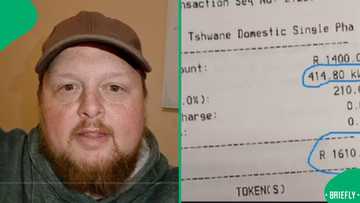Simple Household Audit to Identify Potential Savings
Renier Botha is a Cape Town-based entrepreneur and financial lender with over 13 years’ experience in the short-term lending space, supporting individuals and families across South Africa. He is passionate about turning his financial acumen into real-life budgeting and saving advice for modern life.
A financial specialist has shared how SA households can find savings of up to R3,000 monthly through a simple DIY financial audit of their spending habits.

Source: Original
Renier Botha, founder of Southern Finance, said most families across different income brackets have significant "hidden" savings potential that can be uncovered through a structured review of monthly expenditure patterns.
The financial audit process
The financial audit process outlined by Botha involves analysing spending across key household categories, including food, transport, utilities and discretionary purchases to identify where cuts can be made without affecting quality of life.
PAY ATTENTION: Briefly News is now on YouTube! Check out our interviews on Briefly TV Life now!
"The statistics show that most households spend far more than necessary in at least three key areas, with food and utility bills often offering the quickest wins for immediate savings," Botha said.

Read also
A post showed the life-changing opportunities available to someone who pursued training after matric
He noted that grocery spending typically offers the most substantial opportunity for reduction, with meal planning and bulk purchasing strategies potentially saving households up to R900 monthly.
"Many people shop without a clear plan, resulting in impulse purchases and food waste. Simply creating a weekly meal plan before shopping can reduce grocery bills by 15 to 20 per cent," Botha explained.
"Another strategy is buying household staples in bulk during promotions, which creates consistent monthly savings that quickly accumulate."
Potential saving
The second biggest area for potential saving, according to Botha, is subscription services, with many households paying for multiple streaming platforms, unused gym memberships or forgotten app subscriptions.
"Most clients we work with are genuinely surprised when they list all their subscription services and find they're spending R600-800 monthly on services they rarely use," he said.
Utility bills represent the third major saving opportunity, with better energy usage habits potentially saving R400-600 monthly.

Read also
A man chose luxury Christian Louboutin sneakers over paying lobola, and the video sparked online debate
"Simple changes like switching off appliances completely rather than leaving them on standby can reduce electricity usage significantly," Botha advised.
"Many households are still wasting money on unnecessary energy consumption that adds no value to their lives."

Source: Getty Images
Save R500 monthly
Transport costs, particularly fuel usage, offer another substantial saving area, with Botha suggesting that combining trips and planning routes more efficiently can save R500 monthly for the average household.
Botha recommends conducting a financial audit quarterly, noting that spending patterns change with seasons and life circumstances.
"The beauty of this approach is its simplicity. Anyone can sit down for an hour with their bank statements and identify these savings without needing professional help," he said.
Botha explained that the key is consistency. Once you identify potential savings, you need systems to maintain them, such as automated transfers to savings accounts on payday before you can spend that money elsewhere.

Read also
"Our biggest enemies are Eskom and SARS": R1.6K for just 414 units of electricity has SA enraged
3 More budget-related stories from Briefly News
- Briefly News previously reported that a car salesman shared which cars people who earn R8 000 can buy.
- A young lady shared what R200 can get someone from the grocery store, and South Africans couldn't believe what she bought. People had mixed feelings about it.
- A content creator shared the amount of food she bought with R500 and shared her thoughts on the cost of living in South Africa.
Disclaimer: The views and opinions expressed here are those of the author and do not necessarily reflect the official policy or position of Briefly News.
PAY ATTENTION: Follow Briefly News on Twitter and never miss the hottest topics! Find us at @brieflyza!
Source: Briefly News

